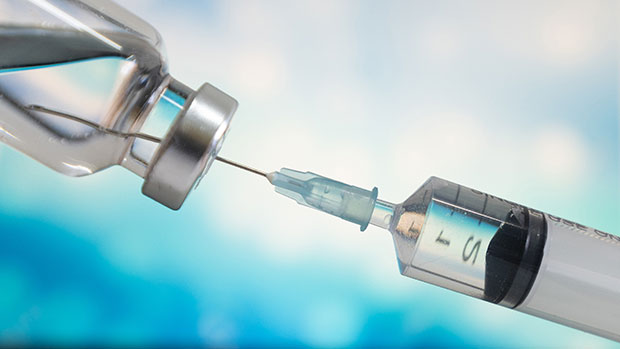Welcome to the world of self-care!
Want to know how self-care improves your mental health and how to do it? Here’s gives the subtle art of it. Read till the end!
Self-care and mental health
Mental health and self-care are interdisciplinary subjects. They always go hand in hand. Mental health governs our responses, thoughts, feelings, and our behavior. Similarly, self-love helps in maintaining a sound and healthy relationship with yourself. In addition to that, It is a feeling of self-awareness that develops from behaviors that promote our mental, emotional, physical, and spiritual development.
Statistics show that 44% of the millennials of the world practice self-care. If you are someone who is suffering from mental ill health then taking good care of yourself is a predominant step of your recovery process.
How self-care improves mental health
Self-love is seen as a fundamental human need. However, it is frequently associated with ego, narcissism, amour, etc. Well, whatever it is compared to, self-love and self-care are crucial for a happy life.
Here’s how self-care improves mental health:
1. Makes us mindful
People who self-love themselves are aware of their thoughts and feelings. They can manage them better, instead of being overwhelmed by them.
2. Boosts self-esteem
You can achieve healthy self-esteem, which is the sensation of being confident in your abilities, opinions, and abilities, by practicing self-love. When you have a healthy sense of self-worth, you see that failure is a chance for growth rather than a painful sign of failure. Additionally, You’ll be less prone to experience loneliness, substance misuse, or anxiety if you have high levels of self-esteem.
3. More optimistic thoughts
You gain self-assurance and learn to accept who you are when you love yourself. In addition to this, You appreciate your physical appearance and are unaffected by how others perceive you. You accept your loss as well as the circumstances and limitations of your life. You can think positively just by being content with your life. This has a significant effect on mental health and lowers life stress in general.
4. Lower risk of anxiety and depression
Studies suggest that self-care activities like meditation, yoga and relaxation improve your mental health directly. When ignored, this may lead to high-risk behaviors or irrelevant coping behaviors which subsequently increase depression and anxiety. So, these kinds of high-risk behaviors prevent individuals from achieving normal developing tasks and their daily life as a whole.
Read more- Top 5 Amazing Benefits of Aloe Vera.
5. Positive effects on health
You give your body all it requires while on the path to self-love, including rest, nutrition, water, and exercise. Similarly, You are in good health, capable of doing your job duties, and able to assist and take care of others. Most people find it challenging to maintain a healthy lifestyle, yet it is possible to do so to further your objectives. Your desire to incorporate your goals into your everyday routine will come from loving yourself.

Healthy eating women
6. Productivity increase
Self-loving individuals do have greater cognitive abilities. They frequently exhibit greater concentration and focus. Also, They do not worry about the past. They consider the future while living in the present. This makes them happy. Additionally, self-care enhances your capacity for memory, judgment, and problem-solving.
7. Be able to handle adversity
When facing challenging circumstances or occurrences, you’ll feel less anxious or uncomfortable if you love who you are. You won’t measure yourself against others or compete with them. You’ll accept your challenges. You’ll develop an optimistic outlook and a willingness to be innovative and attempt new things.
How to self-love and care
Remember self-love has no limit. It includes making the time to engage in activities that enhance your quality of life and your physical and mental well-being. Self-care can improve your energy levels, reduce your risk of sickness, and help you manage stress The impact of even modest daily self-care actions can be significant. Is it something that we can get from clothes or food or makeup? No! Not. Here are some activities that help you in self-care and improve your mental health:
- napping
- A hot cup of herbal tea
- Warm fuzzy socks
- Self-massage
- Reading books of the genre you like
- Cleaning your room
- Taking a walk
- Spending time with your loved ones
- Journaling
- Community service
- Sitting in nature
- Hiking
- Going on a vacation
Questions to ask yourself:
- Am I happy?
- What makes me happy?
- What made me happy today?
- What do I crave in life?
- What are the new activities I want to try?
- Where do I want to go?
- What do I love having the most?
- When was the last time I spent some time with my family?
- Am I valued?
Books to learn more about self-love
Here are some of the books that can guide you in the right direction of self-love.
- You are a Badass by Jen Sincero
- Good Vibes, Good Life by Vex King
- I Heart Me by David R, Hamilton
- A Little Book of Self-Care by Adams Media
- Everyday Self-Care by CICO Books
Final thoughts on self-care
Therefore, to be fond of oneself is one of the greatest and most beautiful imaginable sins. So, Caring for oneself is not being selfish! There are numerous ways to define self-care for yourself, and there is no wrong or right way to practice it as long as it makes you feel good. Sometimes, it might take time to fully start caring about oneself, but with baby steps, it is indeed possible.
Also Read: 15 ways to improve mental health at work
FAQs
What are the pillars of Self-care?
There are five pillars of Self-care. Namely, mental, emotional, physical, spiritual, and social.
What if someone near me is making me unhappy?
Remember, no one is important to you other than yourself. So, If someone near you is making you feel unmotivated or unvalued, or unhappy, then cut them off. You always deserve to be happy. Keep this in mind!
What are the three rules of self-care?
The three rules of self-care are: sticking to basics, planning, and keeping a conscious mind.










